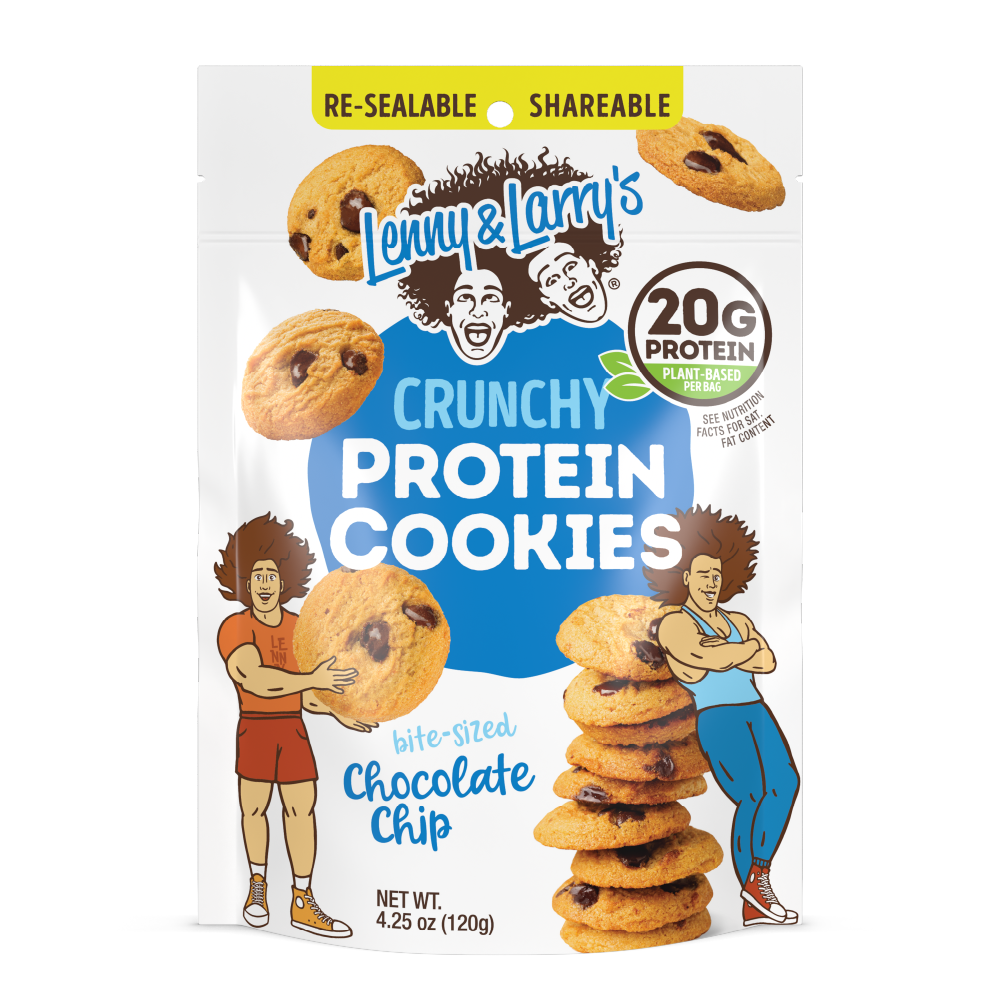We all know that we likely need more protein in our diets, whether for increased muscle recovery after a challenging workout or for more sustainable energy. It's not always easy to get quality protein, especially when it seems as though our lives are getting busier and more chaotic by the day.
"Portable proteins" are a thing, although they're not as easy as they first sound. Vegetarian and vegan lifestyles prevent the eating of meat and animal-based products, so those may not be an option. Fitness-centric protein bars are a thing, but should they be? We love the idea, but the fact is that the taste of most protein bars leaves a lot to be desired. And while raw ingredients are great, it's just not always practical.
So, what are we supposed to do to get quality proteins in a form that's both delicious, fast, and easy to eat while on the go?
Why Protein is Important for Sustained Energy
First, let's talk about why protein is so vital for long-lasting energy. Protein itself doesn't make energy. Instead, protein helps to slow down the absorption of sugar in our blood which should help prevent that dreaded energy crash. And protein itself is slow to digest, so we fill fuller longer.
Sustained energy is best achieved by keeping a balance of the level of sugar in our bodies. Too much sugar can cause energy spikes, but because it's absorbed so fast, it's inevitably followed by a pretty harsh crash. Protein acts as a buffer; when choosing "energy snacks", a healthy balance of carbs and proteins is usually best.
Protein Bars Not Your Thing? Try Nuts Instead
So now that we know why it's so important to get quality protein for energy, how can we get quality protein that tastes good and has sustainable energy? Easy — just eat nuts!
There are many different nuts, but our top three for protein content and ease of access are:
Peanuts (9.5 grams per 1/4 cup)
Almonds (7 grams per 1.4 cup)
Pistachios (6 grams per 1.4 cup)
Since nuts don't need to be cooked, are easy to eat, and are available just about everywhere from grocery stores to convenience stores, we highly recommend them as a quick and easy go-to source of high-quality, long-lasting protein.
While peanuts do need to be removed from their shells in order to enjoy their protein-packed goodness, and there is an allergy concern for some people, they maintain the highest protein content of all commonly available nuts. And fun fact — peanuts are technically a legume since they're edible seeds that are encased in a pod. But nutritionally, they're still considered a nut!
Protein? More Like Go-tein
Protein helps to keep our body running at top form thanks to its slow digestion and ability to buffer the absorption rate of sugar within the bloodstream. This provides a long-lasting energy source to keep us going throughout the day. Additionally, it's also essential for workout recoveries, weight loss, and other beneficial health functions.
More and More Protein Bar Alternatives.
1. Are there personalized protein bar alternatives based on fitness or health goals?
Yes, personalized protein bar alternatives are emerging as a major trend, especially for individuals with specific health or fitness goals. Companies now offer personalized nutrition plans that incorporate protein bars or their alternatives (snacks, shakes, etc.) based on data from wearable fitness devices or lifestyle apps.
By analyzing activity levels, dietary preferences, and fitness targets, these services customize nutrient compositions for optimal performance or recovery. Some platforms offer snacks with a focus on high protein, low sugar, or added supplements like adaptogens or probiotics, aimed at specific needs like muscle recovery, stress reduction, or improved digestion.
There are also DIY solutions where you can create your own protein bars or snacks using ingredients that meet your specific macronutrient goals. This level of control helps you adjust for allergies, fitness requirements, or personal taste preferences.
2. How do protein bar alternatives like shakes or snacks compare in terms of vitamin and mineral content?
When comparing protein bar alternatives like shakes or snacks, ready-made protein shakes may offer a more robust profile of vitamins and minerals. Many protein shakes are fortified with added vitamins such as Vitamin D, B12, and minerals like calcium and magnesium (which are essential for muscle recovery, bone health, and general energy production). These fortified shakes can help fill nutritional gaps that protein bars may not address, especially for people on restricted diets.
On the other hand, snacks like protein chips and cereals often provide fewer vitamins and minerals unless they are specially fortified. There are great high protein pretzel/chip options available. Fitzels (protein-infused pretzels) offer sustained energy through natural ingredients. If you’re looking to maximize vitamin and mineral intake, shakes may offer a more concentrated nutrient profile, but snacks like Fitzels can still provide valuable protein while being more enjoyable and convenient.
3. What are the effects of sugar alcohols and artificial sweeteners in protein bars on gut health?
Certain sugar alcohols and artificial sweeteners, commonly found in protein bars, may have significant effects on gut health when used in excess. Sugar alcohols such as erythritol, sorbitol, and xylitol are often used to reduce the calorie count while maintaining sweetness. However, these compounds are known to cause digestive discomfort for many individuals, leading to symptoms such as bloating, gas, and diarrhea. This is due to the fact that sugar alcohols are only partially absorbed by the intestines, which can lead to fermentation by gut bacteria, creating these unpleasant effects.
Artificial sweeteners can also disrupt gut health. Emerging research suggests that these sweeteners may alter the gut microbiota, potentially leading to metabolic issues and long-term digestive problems. As a result, some consumers are opting for protein bar alternatives that avoid sugar alcohols and artificial sweeteners, such as those sweetened naturally with fruits like dates or using stevia, which tends to be gentler on the digestive system.
4. How do protein bar alternatives impact long-term satiety and energy levels compared to protein bars?
Protein bar alternatives like protein pretzels (including Fitzels), chips, and others can offer a different experience in terms of satiety and energy. While protein bars often contain fiber or fats designed to provide sustained fullness, protein alternatives are often crunchy and snackable with a punch of protein. For example, Fitzels contain high-quality protein, delivering both energy and satiety with fewer calories than traditional protein bars. This makes them ideal for those looking to maintain energy levels without the heaviness that sometimes accompanies dense protein bars.
When it comes to long-term satiety, most alternative snacks offer the benefit of being both enjoyable and nutritious, making them easier to consume throughout the day without feeling overly full. They also avoid the sugar crash that can occur with some bars that contain high amounts of simple sugars. Instead, their balanced macros, including protein and complex carbs, provide steady energy, making them an ideal choice for mid-day snacks or post-workout recovery.
For sustained energy, you may still need to pair protein pretzels or chips with additional sources of fat or fiber for an extended feeling of fullness, but they offer a lighter, more versatile alternative to the sometimes cloying texture and sweetness of traditional protein bars.
 Lenny and Larrys
Lenny and Larrys
